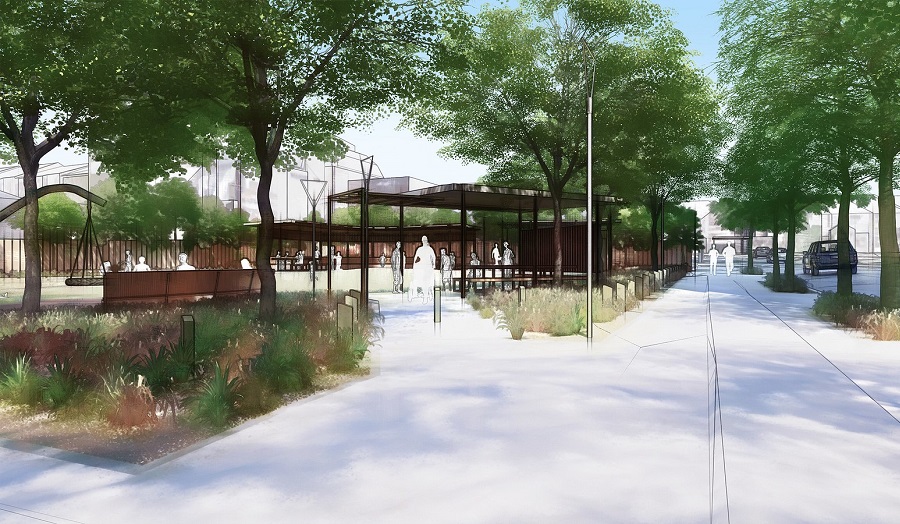A two-day workshop will bring together researchers across the arts, humanities and social sciences working on urban commons.
Date: 7 June 2022
London Met’s Centre for Urban and Built Ecologies (CUBE) is set to host a two-day research workshop on 23–24 June, exploring contemporary interpretations of the urban commons and how these systems can tackle pressing social, environmental and economic problems.
The event, organised in partnership with the Urban Commons Research Collective, will bring together researchers across the arts, humanities and social sciences working on urban commons.
The first day will see the launch of the forthcoming Urban Commons Handbook, authored by the Urban Commons Research Collective. An expert panel, comprising of emeritus Professor of Political Economy and Social Change at the University of East London, Massimo De Angelis, and feminist architect, urbanist, teacher, activist and civil engineer Gabu Heindl, will discuss the book’s themes – which cover different aspects of the urban commons and examples of urban commoning in Europe. Spaces are free but limited, and can be booked on Eventbrite.
The second day offers a one-day workshop open to researchers at any career stage, to provide a space of sharing and thinking together about the urban commons. The workshop will include two guest talks, a set of small-group discussions around different aspects of the urban commons and a debate around future research trajectories in the field.
The organisers explain, “The events will explore the urban commons as a means of generating social processes that can maintain, reproduce and reinvent our lives in times of uncertainty. Contemporary interpretations of the commons posit a political goal, a process of concrete governance of collective resources and a potential form of social organisation.
“In this frame, the commons offer a relevant proposal to generate processes of social reproduction and ecological repair when our collective capacity to repair is in crisis. The idea of the commons also serves as a frame to understand these as political processes and to imagine how we may organise our lives together based on principles of care and collaboration.
“In this context, cities have been a critical space of experimentation. The urban commons transform cities around the globe through projects and practices that challenge capitalist accumulation, extraction and enclosure. Together, they give shape to a political proposal that requires the invention of new kinds of institutions, new kinds of spaces and new kinds of actors in charge of their production and reproduction.
“Understanding the urban commons as open organisational systems for collective management —fostered by radical democratic governance models — allows us to tackle urgent issues, such as climate change and social inequality, from a point of view that is both constructive and relational.”
Image: Brisbane City Council, Creative Commons license

Book your free place: Urban Commons Handbook launch event
Thu, 23 June 2022
5:30 – 7.30 pm
Toynbee Hall
28 Commercial Street
London
E1 6LS
